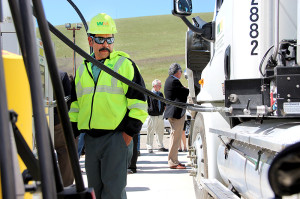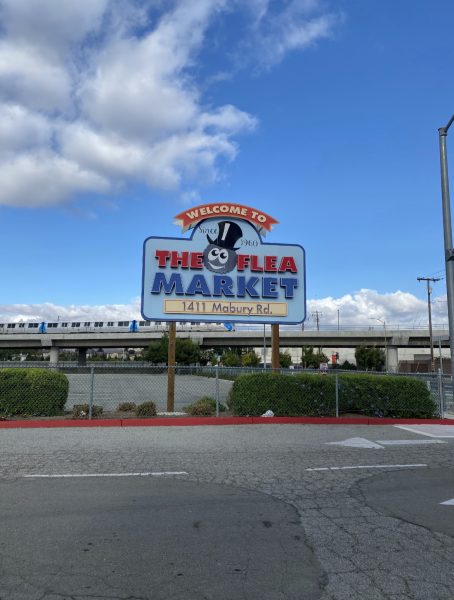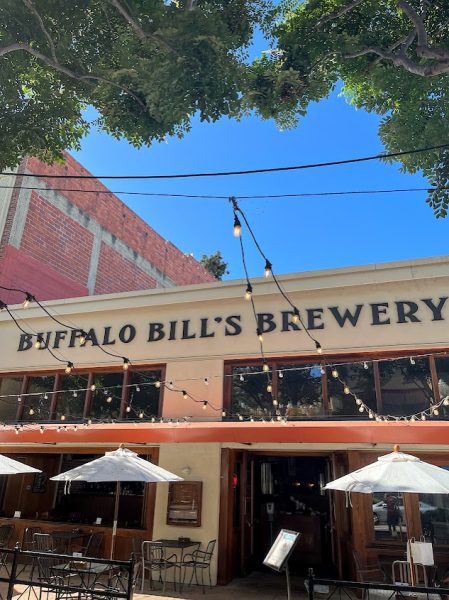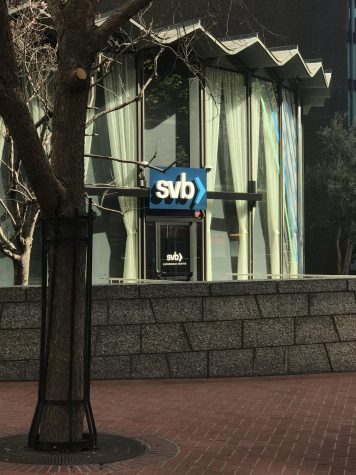Livermore Turns Trash Into Gas

trash into gasoline.
Waste Management’s Altamont Landfill in Livermore held a ribbon cutting ceremony on Wednesday, April 17 to unveil a compressed natural gas (CNG), “Trash Gas” Fueling Station.
“Trucks delivering garbage to the Altamont can now refuel with trash gas,” said Ken Lewis, the area director of Disposal Operations.
Each day, the Altamont Landfill collects 3,500 tons of trash, which omits 13,000 gallons of landfill gas, or methane, that is released into the environment. To capture the landfill gas, wellheads, are strategically placed throughout the plant. The wellheads resemble a sink faucet with a longer pipe that protrudes out of the ground.
The captured landfill gas is then converted to liquefied natural gas (LNG) and transferred to the new CNG fueling station on site. The fueling station operates similarly to a regular gas pump at a typical gas station. There is enough gas to fuel approximately 300 garbage or transfer vehicles a day.
“By constructing a fueling station at the landfill, the transfer of bio-methane to an off-site fueling station is eliminated. It’s a win-win that epitomizes a closed-loop system,” said Richard Battersby, Executive Director of the East Bay Clean Cities Coalition.
Currently, Altamont has 22 transfer trucks that are fueled by the LNG at the CNG Fueling Station. According to Waste Management, this system is estimated to eliminate 2.5 million gallons of diesel fuel and approximately 30,000 tons of greenhouse gas emissions statewide.
The funding for the CNG fueling station was spearheaded by East Bay Clean Cities Coalition, which secured a grant form the Reformulated Gasoline Settlement Fund. The fund came from a class action suit, entitled “In Re Reformulated Gasoline Antitrust & Patent Litigation, MDL Case No. 05-1671 CAS” in 2008, that claims Unocal manipulated the California gasoline market which resulted in higher gas prices.
“It’s the first of its kind in Northern California,” said Joe Camero, Media Relations for Waste Management.
Scott German, Area Fleet Manager of Waste Management explained that the cost of fuel that is produced by the CNG fueling station is 50 percent less than diesel.
Although it is not in the plans now, he does not completely rule out the public sale of the LNG fuel.














